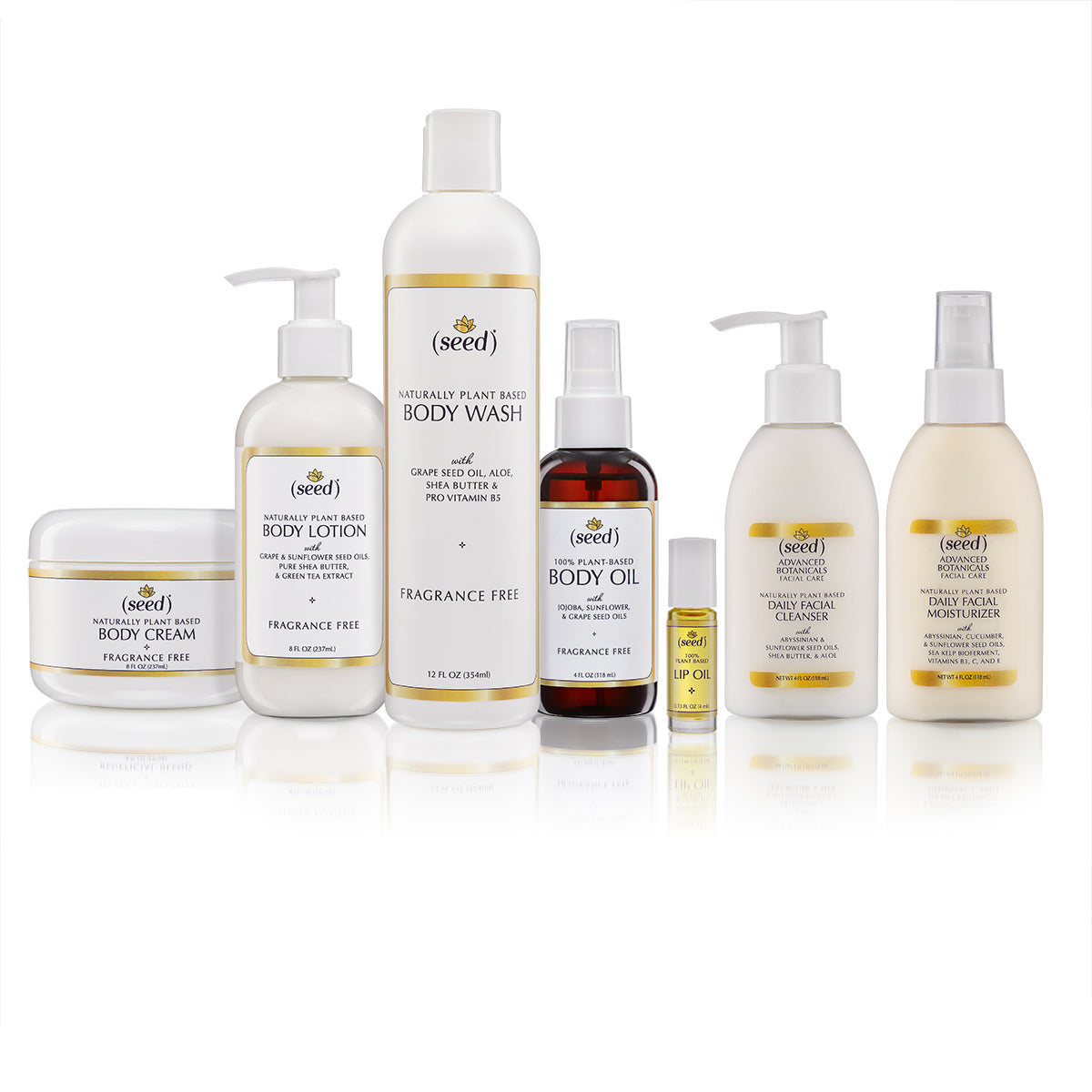Is alcohol in skin care products bad for your skin?

Skin care products with alcohol will cause dryness, right? Not necessarily.
There is confusion surrounding different types of alcohol. I think that when we think of alcohol, many of us picture a bottle of drugstore rubbing alcohol. It is very drying. There are several different types of alcohol that are used in formulating skin care products. Some of these are drying, while others are emollient. The difference lies in the molecular size of the alcohol molecule as well as the amount.
In chemistry terms, alcohol really just means that a molecule has an -OH (or hydroxyl group). This hydroxyl group is attached to a carbon. There can be any number of carbon atoms in this molecule. Short chain alcohols have from 1-3 carbons while long chain alcohols are considered those with more than 8 carbons.
The drying alcohols
The drying alcohols most are us are familiar with are the common short chain alcohols: isopropyl alcohol and ethyl alcohol. Alcohol names are often shortened by using the suffix –ol, so you may also see these listed on ingredients labels as isopropanol and ethanol. Isopropanol is rubbing alcohol. It is toxic if ingested. Ethanol is the type of alcohol found in alcoholic drinks.
In skin care isopropyl and ethyl alcohol are commonly used in harsher toners, hand sanitizers, and more. They often are used to act as a preservative or as a solvent for other ingredients in the product. If you see Denatured Alcohol or Alcohol Denat. on a product label, know that these are just other terms for ethyl alcohol.
These short chain alcohols have a drying effect on the skin because their small size allows them to penetrate more deeply into the skin. Using products with short chain alcohols will likely cause skin to become dehydrated. If you suffer from Rosacea, avoiding short chain alcohols is very important, as they are common triggers for the condition.
The “good” alcohols
Not all alcohols are bad for the skin, though. I mentioned earlier in this post how certain alcohols serve as an emollient. These are the long chain alcohols, which are essentially fatty alcohols. They are derived from natural oils such as coconut and palm. Instead of being liquids, they are waxy solids. On your ingredients labels, you will see them listed as cetyl alcohol, behenyl alcohol, stearyl alcohol, and cetearyl alcohol.
In skin care products, the purpose of fatty alcohols is to keep the water and oil emulsion together. Without it, they would separate. They also improve the texture and appearance of the product. Fatty alcohols are skin emollients and are non-toxic.
Unlike other alcohols, they actually condition and soften the skin.
While so many products say “alcohol free”, it is important to remember that this is not necessarily a good thing when it comes to skin care. Many products are more effective with the addition of fatty alcohols, especially for dry skin. For example, we use Cetyl Alcohol in our Seed Extra Moisturizing Hand Cream, Body Cream, and Body Lotion. And our newest face cream, Extra Moisturizing Face Cream, contains Behenyl Alcohol. Don’t let the word “alcohol” fool you! It actually can be beneficial.
Leave a comment
Comments will be approved before showing up.
Also in Lately I've been paying more attention

5 Skin Care Benefits of Black Cumin Seed Oil
Black Cumin Seed Oil is an ingredient used in skin care that is unfamiliar to many. We like to think of it as an unsung hero. Just what is Black Cumin Seed Oil and why is it so beneficial for the skin?
Let's learn more:
Black Cumin Seed Oil, or Nigella sativa, is rich in history. Used in skin care for thousands of years, it is believed that both Cleopatra and Nefertiti used the seeds in their bath water. In fact, it is said that this ingredient has been used by royalty as a natural skin care remedy for over 4000 years!
Black Cumin Seed Oil is an elixir for red and irritated skin. Known for its anti-inflammatory and antibacterial benefits, Black Cumin Seed Oil is a magical skin care oil that can be used on every skin type.

5 Back to School Skin Care Tips for College Students
College students, let us help you establish a healthy skin care and wellness routine.
....
We've all heard about the "Freshman 15." I gained about 7 pounds freshman year. I can tell you that I had many choices in the dining hall, but my mom wasn't there to make sure I ate my fruits and veggies. I loaded up on macaroni and cheese and mashed potatoes. I drank soda pop instead of water. I made Pop Tarts in my dorm room and ordered pizza regularly. Eat as many fresh, whole foods as you can and drink lots of water. Your skin will benefit from this. I recommend eating lots of

10 Skin Care Benefits of Niacinamide
If you are on the quest for healthy looking skin, this ingredient needs to be in your skin care arsenal.
Niacinamide, or Vitamin B3 (also called Nicotinic Acid) offers multiple benefits to the skin. It can help to visibly diminish the appearance of large pores, fine lines, skin dullness, and also helps to even out skin tone.
There is solid research supporting the benefits of Niacinamide.This skin vitamin is one that truly benefits nearly every skin type. Other recent research published by the editors of the Melanoma Letter suggests that niacinamide "can significantly reduce recurrences of actinic keratosis, basal cell carcinoma and squamous cell carcinoma in patients with a history of these lesions."



